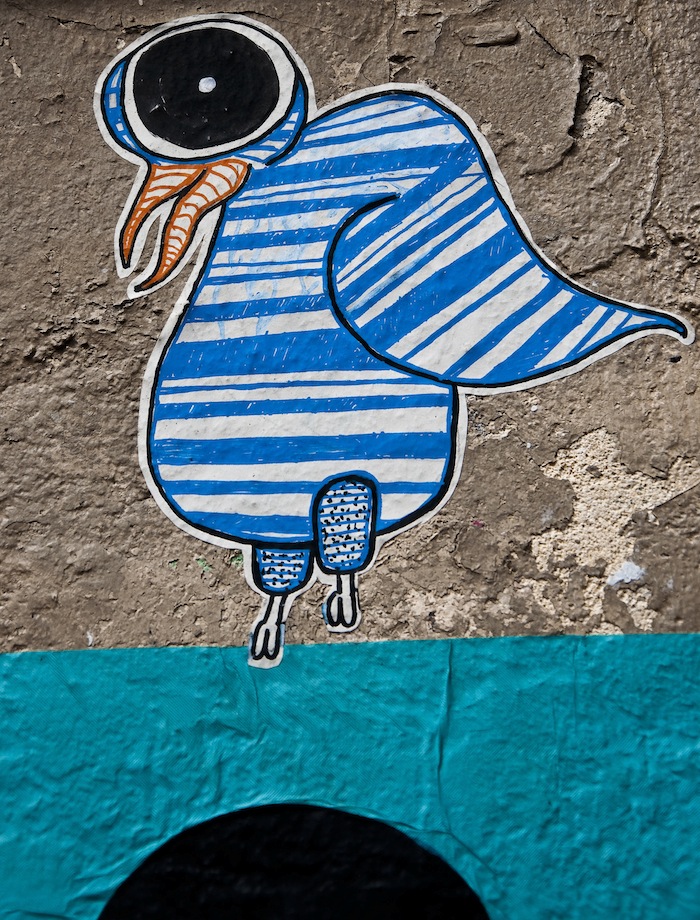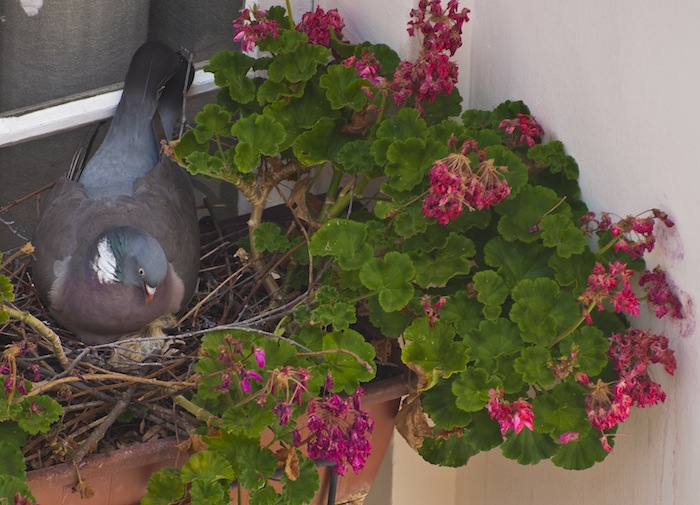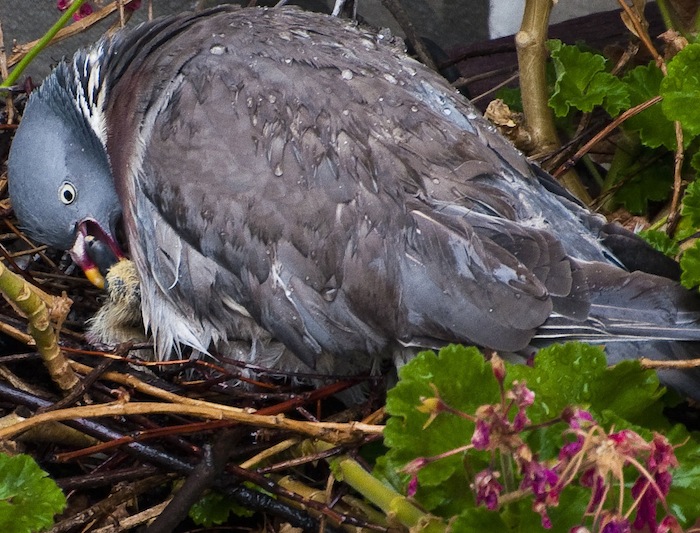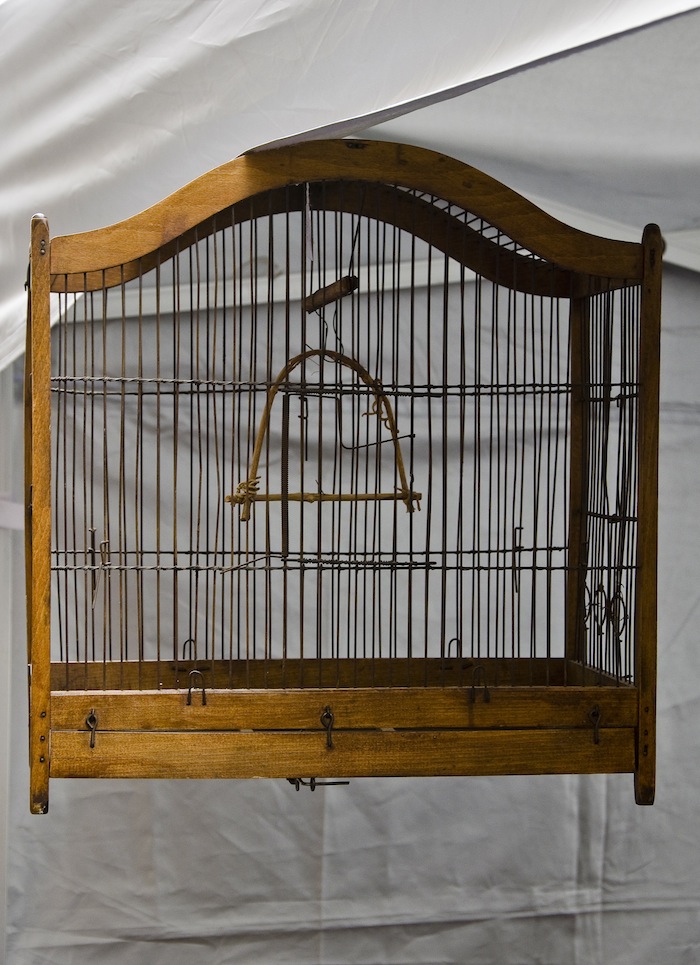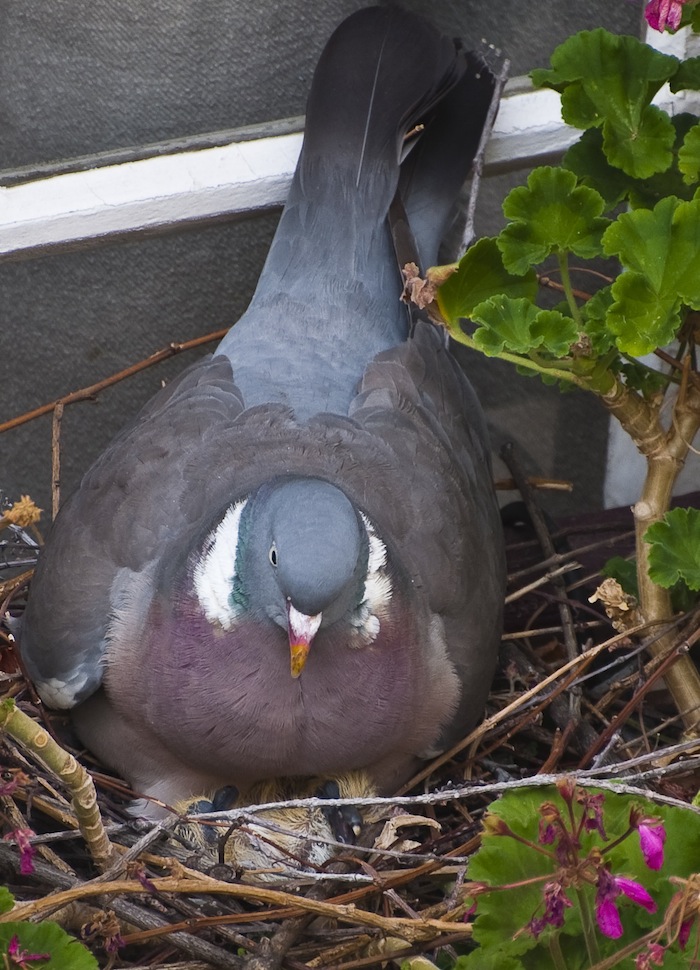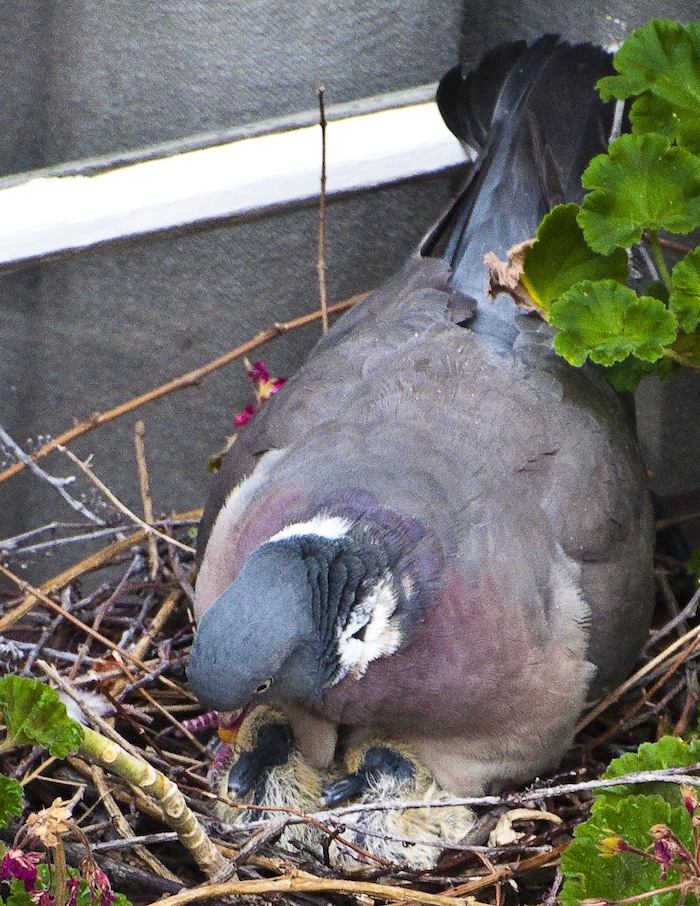Surrealist Café Opens!
 08.6.2011
08.6.2011
On today's menu, the results of our first Surrealist Café community collage. Readers will recall that we asked you to walk into a cafe precisely at 1 p.m. on Saturday, July 30, and record, in whatever medium you chose (poetry, prose, photography, etc.), what you observed. These contributors seized the time, and amazed us with their originality, fecundity and talent. All contributions are (c) 2011 by their individual creators.
This post is dedicated to the memory of our friend, mentor, role model, and surrealist creative, Jane Winslow Eliot, who died at home in Venice, California on Sunday, July 31.
* * * *
Margo Berdeshevsky, Starbucks, Rue de Rivoli, Paris, France:

* * * *
John Harris, Les Deux Magots, Boulevard Saint Germain, Paris, France:
Hemingway would have called her "a well built woman," meaning sturdy and with a good shape. Her long hair, cascading in multi-colored curly strands reflects light like the leaves of Paris' majestic plane trees. She is reading Sartre's Nausea in French, and I know she is French because she wears her clothes well, and not the other way around--as with many chic American women. If there is a "seduction" factor in France that goes deeper than sex, it is here in the café, where Hemingway and his women float through like ghosts, making my heart beat faster.
* * * *
Diane Sherry Case, Starbucks, 26th and Wilshire, Santa Monica:
I wanted this to be playful. But in came a girl with a bashed-in face. Her remorseful boyfriend spent the night in jail, bloody fists and bloodless heart. He remembered their love way too late as his fist flew toward her face and he just couldn’t stop it, he just can’t stop it. I wanted this to be fun. But here she is, her lips caked with blood. Her son came home all hyped up and wired, swearing, You stupid bitch. Then out flew her truth. I never wanted you to begin with, I was sixteen years old. I just wanted to be playful. But here she stands with a bruised green nose. Plastic surgery, what are credit cards for? A new nose, some pouty lips, as if men will come running with hard-ons for her, a hundred hard-ons, she could choose. She picks up her purse, afraid to be seen, and leaves, as the kid with the derby stands there calling her name, Stella, chai latte, Stella, chai latte.
* * * *
Janelle Balnicke, mobile sidewalk cafe, Worthing-on-Sea, England, UK:
See Worthy Widow Walking by Worthing-on-Sea, Saturday July 30th 1PM


* * * *
Tara Ison, Steve's Espresso, Tempe, AZ, USA:
A chalkboard whiteboard blank-parchment fresh-drywalled neck nape, this faceless fetus-soft young boy sitting there back to me, young man man-boy, spread sheet of buttered filo leaves asking to be rolled stuffed baked tasted swallowed whole, a new-shelled pink abalone steak slab smelling of weed and salt and waiting to be licked and nipped by wolves, sniffed and gripped by some mean old bitch who has gone from buttery young flesh herself to crusty dry talon’d owl, who who who is she anymore to taste wet plump tongue and will he leave flee finish his coffee and leap upon his hyped-up hipster sneakered feet and buoyant himself away, will the back of his young man boy neck escape so easily my horned veined crepe’d hand before I am over and done?
* * * *
Stuart Balcomb, Rose Café, Venice, CA, USA:

TEN CITIES: See how the scene and circumstances change with each new location:
Los Angeles: the Player, in his requisite Hollywood black, pitching a script to a hot, young actress.
Seattle: art dealer in Pioneer Square, lunching with his gallery assistant.
Buenos Aires: metal sculptor in La Boca, tourists from Florida at next table.
Boston: jazz club owner, discussing his lease with landlord's wife.
Seville: meeting his daughter-in-law for the first time, his only son having died last week.
Perpignan: owns four fishing boats, wants to sell one.
Albuquerque: Hitman, flown-in to find former mob member, now in the Witness Protection Program.
Munich: Belgian tourist, imploring his estranged niece to stay and have a litre of Hefeweizen.
Palm Springs: retired airline pilot, moved here for his asthma condition.
San Francisco: bartender on his day off, lunching with waitress he secretly loves, but won't ever tell her.
* * * *
Scott MacFarlane, The Bunker, Mount Vernon, WA, USA:

“Bunker”
One o’clock
home
from the inferno, from her
duodenum raging
like Der Führer concussed in his bunker,
like a pickax impaling the blue iris of her mortality,
like stillbirthing.
“I can’t live like this.” Woe and tears
drip
drip
drip of drugs
end her Third Reich of agony,
extract the axe
resurrect the old her,
day-to-day.
Saturday’s
peace of
acquiescing
pain.
* * * *
Ann Denk, Café Inconnu, Newport Beach, CA, USA:

* * * *
Joanne Warfield, Rose Café, Venice, CA, USA:

Little Kenzo
Ahh, little Kenzo, full of pure joy,
What’s to become of this four-year-old boy?
A rocket scientist or a priest yet to be?
What lies in his future, the world will soon see.

There’s hope, I do glean, in his backpack of books,
and in the kind eyes of his mother’s sweet look.
With all of our children so gently embraced,
This surely would foster a true state of grace.
* * * *
Steve De Jarnatt, Food, Pico Boulevard, West Los Angeles, CA, USA:
A familiar face. A face that feeds me. On the Westside now. But it had given sustenance mid-town for years. It all came back one day. Judy, Judy – Judy’s.
I’m a regular — tri-salad to go, meatloaf from heaven. Comfort. FOOD. And idle, always interesting chat. The Eames—ADD—locavores. Today I go by ruled by time, on an expedition to capture a moment. But she’s not in today far as I can see. I scour the faces. Families picking crusts like any other, the solitary ones who homestead a table for the day—the Gort glow of their MacBooks winking. Nothing to write home about. Or to Paris.
There she is — in the kitchen. Judy’s reddened mug. Overseeing something emerging from the oven? Crying. With someone else who’s crying. Through the portal square, framed beside The Specials. String hair down from the bun. Moving from the frame, off stage—unknown.
* * * *
Suki Kitchell Edwards, 8100 feet up Animas Mountain, Durango, CO, USA:

* * * *
Dawna Kemper, Pat’s, Topanga Canyon, CA, USA:
Bright yellow bandana-print muumuu fringed bottom smocked bodice you keep pulling up to cover the bikini top with the cacophony of black and white letters pressed against each other. What do they say? (I can’t tell without staring.) Speaking Spanish to the waitress to your husband to God. Unruly waves of dull brown hair pushed free of your face by a wide stretchy black band bold in your pockmarked makeup-free beauty. Flip flop dangles and falls from your pink lacquered toes and stays off, foot dangling free naturally expressive the hands, too, painting words while you speak chopping smoothing waxing the air in front of you. You eyed my boyfriend’s plate when it arrived, then back to talking niños with your husband hands still moving pausing only when your own plate of eggs was delivered, latching hands with your man to offer up a whispered rezo a Dios.
* * * *
Bruce Moody, Café Inconnu, Crockett, CA, USA:
The Crimson Jumper
She walked a hundred miles in one week, once. From a disappointment in love. She didn’t know where she walked. Those old roads. Her head down. Just walked. Until love fortified itself in her, and dropped off its silver lamé of being duped. Now she sits guarded by her garments, which are unremarkable, which fit, which are comfortable and offer neither disguise nor invitation. She bends over her gadget. It does not mean anything to her, but it works for work. This is a strong woman, the air around her declares. Or a stronger woman. Stronger than before. She does not trumpet it. It is just in the air, like oxygen is in the air. Useful. Wiser. Benevolent.
* * * *
Lorie Adair: Steve’s Espresso Café, Tempe, AZ, USA:
He scratches behind an ear, cups his chin in a hand pale as a fish. He speaks to a friend; his mouth is thin, teeth the color of dishwater. Reaching into his pocket, he shifts to stand. At 6’ 3”, his thin legs poke from blue scruffs. He removes an I-Touch, rubs his fingers along the screen. He listens to his friend, grunts, holds the Touch 8 inches from his face. He sets it on the table, nods at his companion then lifts the screen again. He tilts it; a background beat of Soul. He stands, signals the barista. “Another to go.” He flips open courier bag, placing Touch in its pocket, angling laptop in its slot. Humidity like sex. Later, he reaches for the Touch, scrolls through the list, his forefinger sliding along glass. Caressing black space, he forgets the color of her eyes, the brand of lipstick she wears.
* * * *
Patrice Bilawka, Café Literati, West Los Angeles, CA, USA
Dusty Brogues
The Stranger strolled into the café and took his place across from me. Every day, same time—10 a.m. Just like me. He rarely looked around, but when he did he would sometimes cringe. His eyes were a blue, watery abyss. We never spoke. But I thought, “Maybe today… yes, maybe I should say hello.” Would I smile, or nonchalantly stammer a quick greeting? I would just do it. And whatever came out would be fine. I was looking at his shoes. Dusty brogues. Then I brought up my glance, and…the Stranger disappeared. He didn’t get up and leave, or switch to a different chair. I looked around to see if anyone else noticed. No. But he was gone. Do crazy people know they are going crazy? Do they keep things to themselves, like seeing people disappear? That was 7 weeks 2 days and 4 hours ago. The Stranger has not returned, and I have not seen anyone vanish since.
* * * *
Jon Hess, Café Literati, West Los Angeles, CA, USA:
"We close in five minutes," says the cricket behind the counter at Café Literati. Her fabulous gold hoop earrings sway, patting her neck. Her freckles are peach colored. "Well?" Her smile is nice -- her sadness deep. Her guitar is waiting for her in the trunk of her beat-up old Honda Civic. Chairs are put on tables. I'm the last customer. I wanted to tell her that I came here to write about her for my friend's blog "Paris Play." But then the seductive mystery of not knowing would be shattered and she would no longer be a stranger. Then I want to tell her to never stop singing, because her music heals her. The room is quiet for a moment. Minutes later, I step onto the LA street and imagine Paris.
* * * *
Richard Beban, Café André Breton, Paris, France:

 cafes,
cafes,  photographers,
photographers,  surrealism,
surrealism,  surrealists,
surrealists,  writers,
writers,  writing in
writing in  Paris Life
Paris Life 








